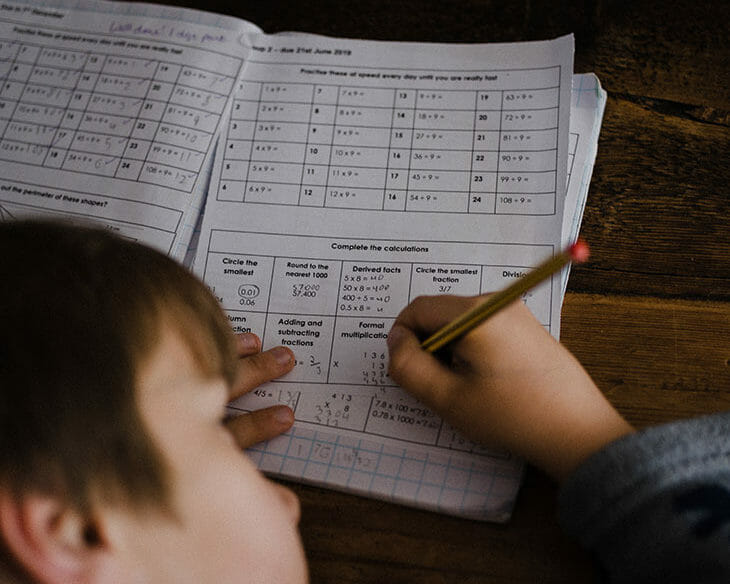Cathy Patterson, Director of Enrollment & Financial Assistance
The Why’s Behind Admission Testing

When families wonder about testing and why McLean School’s Admission Office requires at minimum Achievement and IQ Testing. Here’s what I share:
Achievement and IQ Testing are a starting point to assess a student’s possible fit.
Our mission is to prepare bright students, including those with dyslexia, anxiety, ADHD, and organizational challenges for college and life success. By understanding a student’s cognitive profile and academic skills in reading, writing, and math, our Admission Committee has a place from which to begin to understand an applicant’s strengths and challenges.
There’s a distinct difference between standardized tests like the SSAT/ISEE and Academic Achievement Testing like the Woodcock Johnson Test of Achievement (WJ).
- While the Admission Office will accept achievement testing in the form of an SSAT or ISEE, we strongly recommend a more robust assessment that isn’t a standardized multiple-choice test.
- The Woodcock Johnson-IV is a valid and reliable assessment that can better tease out a student’s academic strengths and challenges, and when paired with an IQ test, show any discrepancies in a student’s profile. For instance, a student with a superior intellect would likely score well on a math assessment. If a student doesn’t, there could be a learning or attention challenge at play.
Testing benefits a family in understanding how their child learns best.
When families are searching for a new school, it’s better to not make guesses or assumptions about what a child needs so they thrive instead of just survive. Additional assessments that go beyond achievement testing, such as a psycho-educational or a neuropsychological battery, will look even deeper at a student’s profile and better assess the ‘why’ in addition to the ‘what’. This testing, and the usual consultation from a professional that follows, can really begin to point a family in the right direction.
Testing provides our expert teachers with valuable information.
- Once a student enrolls at McLean School, admission testing is shared with our teachers and Learning Services team at each Division (composed of Coordinators of Learning Services, speech-language pathologists in the Lower and Middle School, a math specialist and reading specialist in both the Lower and Middle School, occupational therapists in the Lower School, counselors in all three divisions, and a K-12 Master Reading Coordinator).
- This gives teachers a beginning blueprint for choosing what approaches and/or accommodations will best support your child.
Nuances can be discovered through IQ and Achievement testing.
- Results of IQ and achievement testing may lead a family to discover unknown areas of challenge. Underlying language challenges with receptive and expressive language skills directly impact a student’s performance. These often may go unnoticed by a classroom teacher who is not trained to understand the impacts these developmental skills have on a student’s performance.
- Sensory processing challenges may be observed by the untrained eye as behavioral problems and thus reinforced in a negative way, causing more behavioral challenges.
- Visual tracking issues can also be discovered through a psycho-educational or neuropsychological battery of tests that affects a child’s reading and writing skills.
No matter what type of testing you move forward with for your child, my parting words are always the same – let it be as low stress as possible. Searching for a new school can bring on its own stressors for a family, and my sincere hope is that any type of testing a child must take for admission purposes doesn’t make that process even more difficult. Happy Testing!
– Cathy Patterson, Director of Enrollment & Financial Assistance